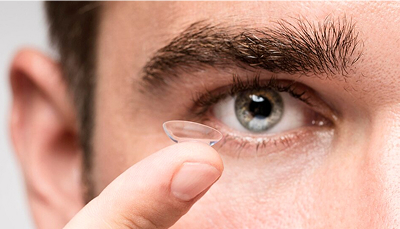1. Prevents Tear Film Disruption
- Contact lenses sit on the tear film and can interfere with its natural distribution.
- Proper cleaning ensures minimal deposit buildup, allowing tears to spread evenly and retain moisture.
2. Use of Preservative-Free Solutions
- Some multipurpose lens solutions contain harsh preservatives that irritate the eyes.
- Switching to preservative-free or hydrogen peroxide-based solutions can reduce inflammation and dryness.
3. Replace Lenses as Recommended
- Overwearing lenses reduces oxygen permeability and can lead to hypoxia, worsening dry eye symptoms.
- Follow proper replacement schedules (daily, bi-weekly, or monthly) to avoid buildup of proteins and lipids.
4. Use Rewetting Drops for Extra Lubrication
- Contact-compatible lubricating eye drops (preferably preservative-free) help rehydrate the lenses and reduce discomfort.
- Especially important during long screen time or dry environments (air travel, AC rooms).
5. Avoid Sleeping with Lenses On
- Sleeping in contacts drastically reduces oxygen supply to the cornea and worsens dryness and irritation.
- Always remove lenses before sleep unless you use extended-wear lenses prescribed by your doctor.
6. Keep Lenses and Case Clean
- Dirty lenses or lens cases increase the risk of eye infections, which can damage the tear-producing glands and worsen dry eye.
- Clean your case daily and replace it every 1–3 months.
Summary:
Proper contact lens care helps manage dry eye by:
- Preserving tear film balance
- Preventing irritation and infections
- Supporting oxygen flow to the cornea
- Enhancing lens comfort and wear time
